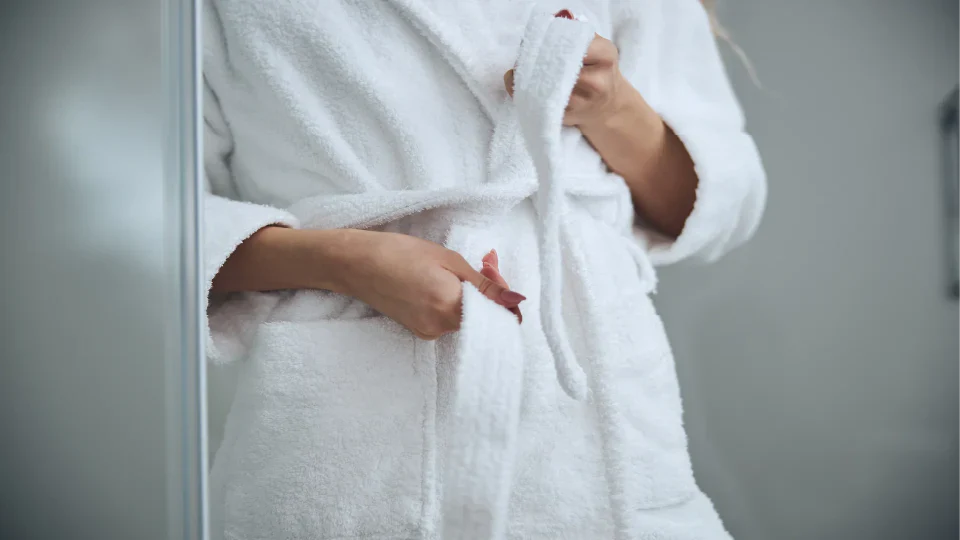
What are Lactobacilli and do they help prevent UTIs?
More of us are now aware of the microbiome – whether it’s in relation to the gut or our more intimate areas such as the vagina!
You need a healthy balance of bacteria in these areas to keep things stable, and reduce the risk of infections/disease, and intestinal microbiota can contribute to metabolic health¹. It is important to keep in mind that while one type of microbe might be beneficial in one part of the body, it might not be in another part of the body.
Our bodies contain trillions of microorganisms, including bacteria, fungi and viruses², and while the gut is very diverse and these microorganisms coexist peacefully, a healthy vaginal microbiome is lactobacilli dominated.
One type of bacteria that is important in protecting against infection – particularly those irritating recurrences of UTIs, thrush and bacterial vaginosis (BV) – is lactobacillus. We look at what it is and why it is important in reducing the recurrence risk of UTIs and other infections.
What is lactobacillus?
Lactobacilli are a ‘good’ or ‘friendly’ type of gram-positive bacteria that are found in the human gut, mouth and vagina. They are important for our gut health, and it is also the dominant bacteria of the vaginal microbiota.
A type called Lactobacillus acidophilus is commonly found in probiotic supplements, as it allows for a longer shelf life. However, it is the type called Lactobacillus crispatus (L. crispatus) and its dominance that is associated with a healthy vaginal microbiota.
Lactobacilli thrive in the vagina where they use vaginal mucins as a food source. They fill the niche of the vagina, forming a layer that physically prevents other microbes from accessing vaginal cells and growing into an active infection. That type of protection is also sometimes referred to as colonisation resistance, which has proved to be a useful model for understanding microbial communities in barrier surfaces.³
Lactobacilli also produce lactic acid – this is why the optimal vaginal pH is quite acidic, around pH 4 – 4.5. This acid acts as a chemical barrier against pathogens. However in order to produce lactic acid, lactobacilli need to first get to the vagina and happily colonise it.
What are the benefits of lactobacillus?
Having lactobacillus colonise the vaginal microbiome is important because it helps protect you from disease and fight infection. Basically, you can think of these bacteria as friends that have your back during difficult times!
The vagina should have mainly lactobacillus in comparison to other microbes and if too many other bacteria (such as E. coli bacteria, which live in the bowel) start to invade, this can cause our vaginal microbiome to become unbalanced and reduce the level of protection the lactobacillus can provide against infection. You might even find that you are taking probiotics but the infections are still coming back.
Why have they not cured UTIs yet?
With all of the advancements in medical science, many people wonder why UTIs have not been cured yet. There are a few reasons why this is difficult:
- Patients keep taking antibiotics which keep killing the lactobacilli as well as the harmful bacteria
- Oral probiotics also need to make it from the mouth to the vagina, but there are lots of metabolic barriers along the way which means that not all lactobacilli make it.
- Oral probiotics might not be the lactobacilli patients need to tackle the infection.
Can lactobacillus be used to reduce the risk of UTIs and other infections? Pretty much all women are familiar with just how annoying recurrent UTIs can be, whether you get them yourself or you know friends who suffer! It’s not always quick to get treatment, and you end up in a cycle with antibiotics.
Plus, if you keep using antibiotics to fight infections, they will kill all types of bacteria, including the lovely protective lactobacilli that they want to stay dominant in our vaginal microbiome!
Therefore, many women find themselves in an endless cycle of antibiotic use to treat UTIs because the infection is stopped but the microbiome is further unbalanced. However, there is growing evidence to suggest that lactobacillus could be used as a treatment option for UTIs as it can restore its presence. One study that used an intravaginal suppository probiotic of L. crispatus⁴ found that recurrent UTIs occurred in 15% of women receiving the vaginal probiotic treatment compared with 27% of the placebo group. Another recent review article⁵ found that “Probiotics appear to have a significant potential in the prevention of recurrent UTI”.
Probiotics however do not have a direct effect in the same way that antibiotics do. For probiotics to work effectively, one first needs to get rid of the bad bacteria, and lactobacilli can’t really fight bacteria on their own. The way that lactobacilli ‘fight bacteria’ is through colonisation resistance and producing an acidic environment, but for this to happen they need to get to and then adhere to the vaginal epithelia. Lactobacilli’s ability to do this is limited if there is no space due to the presence of E. Coli.
Many of us women also suffer frequently from other vaginal infections, including thrush and bacterial vaginosis (BV). The presence of lactobacillus in the vaginal microbiome is important in preventing various types of infection, and can help in reducing the recurrence of thrush and BV. If you suspect your vaginal microbiome may be unbalanced, as you frequently suffer from the above mentioned conditions, you can consider taking probiotics that contain lactobacillus to help restore that balance.
This blog was a deep dive into some of the science of our intimate areas and hopefully it has been useful! If you have any other questions about lactobacillus or the microbiome, feel free to leave a comment below.
Sources
- https://www.nature.com/articles/s41579-020-0433-9
- https://www.hsph.harvard.edu/nutritionsource/microbiome/
- https://www.nature.com/articles/d42859-019-00018-y#:~:text=Colonization%20resistance%20has%20proved%20to%20be%20a%20useful,to%20the%20much%20earlier%20ecological%20concept%20of%20%E2%80%98allelopathy%E2%80%99
- https://www.nature.com/articles/nrurol.2011.72
- https://www.sciencedirect.com/science/article/abs/pii/S0882401020309104




